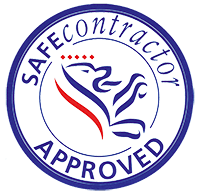Throughout January we have been posting a winter plumbing tip every day on Facebook and Twitter. These tips have been specifically written to get you, and your plumbing, through the winter months where plumbing issues can be exacerbated by very cold weather. The tips have included preventative maintenance, what to do in an emergency and ideas for troubleshooting when things don't work as they should.
We all know what a disruption the extreme weather we had in 2018 caused so following these tips could well avoid or minimise problems this year, whether we get another 'Beast from the East' or just regular winter cold weather.
Here is a round up of all 31 tips posted during January:
1. Prevent your boiler condensate pipe freezing by lagging it to protect from the cold
2. Make sure your boiler servicing is up to date. Issues are most likely to arise in cold weather if the boiler hasn’t been looked after properly
3. Boiler broken down in cold weather? It could be that your condensate pipe has frozen. Try defrosting it by pouring warm (not boiling) water over it or even a hairdryer or hot water bottle
4. Radiators have cold spots? It could be sludge in the system. This can usually be resolved by a powerflush
5. Make sure you know where your stop tap is and that it can be turned easily. You don’t want to find that it’s inaccessible or stuck in a flooding emergency. Consider installing a Sure Stop
6. Pipes to outdoor taps can easily freeze in cold weather and burst. Lag them to try and prevent it happening
7. Is your outside tap on a separate stop tap? This can be useful if it freezes in cold weather as it allows you to turn it off without turning off water to the house. Consider installing a Sure Stop if not
8. In very cold weather keep your condensate pipe warm by pouring warm (not boiling) water over it in the evening to prevent it freezing overnight
9. Consider having thermostatic radiator valves installed on all radiators to help you regulate the temperature more efficiently and potentially save you money
10. Water taking a long time to heat? This could be down to low water pressure and could be caused by leaks or blocked pipes. Determine the cause so you can resolve the issue before it causes damage
11. Radiators only heating up at the bottom? They could need bleeding. If this doesn’t work, it may be sludge so consider a powerflush
12. Water pooling in the house or garden could indicate a burst or leaking pipe. Have investigation work done to check where the problem is
13. Make sure you have a carbon monoxide monitor near your boiler and if you have one, make sure you test the battery periodically. It could save your life in the event of a CO leak
14. Got broken grates? Falling leaves and dirt and debris swept in by rain and melting snow can block drains if not protected by a fully intact grate
15. Prevent the build-up of sludge in your boiler by adding inhibitor. It’s much cheaper to prevent than it is to fix!
16. It’s a myth that leaving the heating on low all day is cheaper than having it on a timer. You could be heating the house when nobody’s home and it not be warm enough when people are
17. Vary the temperature on a room by room basis using your radiator thermostats. Keep it low or off completely in rooms that are seldom used to heat your home more efficiently
18. Worried about the cost of heating your home over the winter? A smart meter could help you understand your energy consumption better so you can make adjustments
19. Keeping doors and curtains closed can help to conserve heat. Thicker curtains that reach the floor will retain heat best. Keep them open during the day to gain heat from daylight and close as soon as its dusk
20. When it snows does your roof defrost faster than your neighbours? This could be an indication that your home is not as well insulated and you could be wasting energy. Consider cavity wall and loft insulation and energy efficient double glazing
21. In very cold weather consider leaving the heating on low at night to prevent the condensate pipe freezing up which could shut down your boiler
22. Familiarise yourself with your boiler and how it works including how to set the timer and what fault codes mean and what to do if they come up. This will help you use it more efficiently anyway and saves you having to get to grips with it in an emergency
23. It’s always worth having some electric plug in heaters for use should your boiler break down. It could help to keep you warm while you wait for parts to come in or an engineer to call
24. High water bills, mildew or mould in the home, bubbles in wallpaper or paint and damp smells can all be signs you have a leak somewhere. Call a plumber to investigate
25. A magnetic filter can be used to prevent sludge building up in your central heating system. It is most effective when combined with inhibitor
26. A ‘kettling’ noise in your boiler can indicate that water flow is restricted due to sludge and so it starts to boil. It can usually be fixed by replacing the heat exchanger or a powerflush
27. Regularly check your boiler pressure as low pressure can reduce its efficiency. You can top the pressure up yourself but if it’s consistently losing pressure you should call in a heating engineer
28. Check boiler cover policies carefully so you understand exactly what is covered and what is not. Things like the age and condition of your boiler, lack of maintenance and qualifying periods could all potentially invalidate claims
29. Going away for a winter break? It’s a good idea to turn your water off at the stop tap and leave the heating on low on a timer to prevent pipes freezing and bursting
30. Worried you may have a leak somewhere? Not dealing with it could cause much bigger problems, especially in freezing weather. Consider having an investigation now so you can deal with it
31. Know who to call in a plumbing emergency in the middle of the night or on a weekend? Always keep the number of a 24/7 reactive plumbing company handy for such an emergency (0333 577 0151 is a good one!)
Complete the form below and one of the Plumbcare.com team will get back to you as soon as possible.





